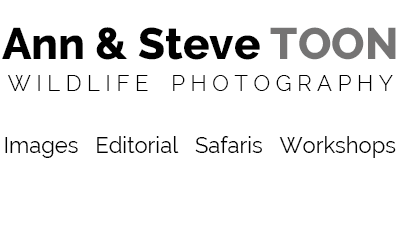Today is World Environment Day, the theme – illegal wildlife trafficking. Whether or not to legalise the trade in rhino horn has been one of the hottest controversies surrounding the poaching crisis. The South African government has backed off plans to seek the legalisation of an international horn trade later this year at the CITES convention, but Swaziland will put in a bid for legalisation. As part of our recently posted interview with Simon Naylor, reserve manager at Phinda private game reserve, about the human and financial cost of rhino poaching, he also told Project Africa Rhino why in his opinion the horn trade should be legalised. For the argument against legalisation see our post: interview with the EIA.

Simon Naylor, reserve manager of &Beyond Phinda private reserve
‘I am pro rhino and anything that adds value to a live rhino. Protecting and conserving rhino in Africa today takes millions of rands/dollars, money that owners and the state just don’t have anymore. Both state and private parks have had their budgets slashed. Take Ezemvelo KwaZulu-Natal Wildlife, for example, the flagship conservation agency in years gone by, with a proud history and legacy of rhino conservation. They are broke and having to freeze vacant posts across their parks. Their operating budgets are slashed year on year. They literally cannot afford to protect rhinos effectively anymore.’
‘In South Africa we have the privilege as private individuals of owning these magnificent animals. If you give rhino value you give it a future. Ownership creates the incentive to protect and conserve. If you can add to its value, rhino has the potential to become one of the best protected animals in Africa, with its numbers flourishing. If it was not for South African private rhino ownership white rhino numbers would not be where they are today.’
‘It’s a misconception that there’s a handful of greedy private rhino owners that are only concerned in selling rhino horn for monetary value. There are over 350 private rhino owners in South Africa protecting and conserving over 6,300 black and white rhino, more than the entire African population of rhinos outside of South Africa. There are numerous private populations of over 100 animals, playing a significant conservation role on the continent.’
‘Close to 90 per cent of these owners are in favour of a regulated legal trade in horn to maintain the value of these animals and pay for the huge security bill in protecting them. Many big reserves in South Africa that protect large populations of rhino have rhino for a number of objectives: conservation, tourism, economic returns and the pleasure of seeing a rhino in the wild. Many of the big reserves are struggling to maintain these objectives. Security is becoming unaffordable and with the value of rhinos dropping, sustainable off take revenues are not meeting the demands of reserve expenses.’
‘Reserves like Phinda are struggling to justify the large numbers of rhinos they protect. It only takes a handful of rhinos to meet the demands and/or expectations of a tourist. If rhinos lose their value and costs continue to spiral, it just does not make economic sense to have such large numbers. This is just a sad reality of a situation many owners have found themselves in and will I suspect in the coming years. The next three years will be a critical period for rhinos on private land. If the value of a live rhino continues to drop reserves will be forced to sell off or dispose of their animals. More and more we are having to rely on NGO funding or government grants which are both not sustainable and inconsistent.’

Black rhino bull scent marking, Phinda
‘The CITES trade ban has not worked. There is no evidence demand is reducing. Criminal syndicates are becoming very rich and powerful and as a result corrupting the fabric of our society. Although there are many dedicated police and public prosecutors, the system is failing us. They are either under staffed/trained/resourced/corrupt or apathetic to the situation. Our rhinos are less secure today than yesterday and the years before.’
‘There is a trade already but it does not benefit rhino owners or managers or rhino in any way. We currently have a situation where the people that invest the most time and money into the conservation and protection of rhino benefit the least. This has to be reversed. We need a situation where the rhino value is increasing and people are queuing up to own/conserve and want one in their game reserve. They need to become assets again.’
‘Rhino have the incredible potential to also bring impoverished rural communities out of poverty. We only have a few years to stop a lucrative trade and demand that is controlled by transnational organised crime and criminal/corrupt government authorities. It’s a tough ask. The South African Government has indicated it will not submit a legal horn trade proposal to the upcoming CITES meeting in Johannesburg later this year. They have indicated that it is business as usual. Swaziland submitted a proposal at the last minute.’
‘I just hope the powers that be, NGOs and the like, can reduce or stop the demand, as well as ramp up their financial support to APU teams on the ground. We also need more support from our government. We don’t have a lot of time and every day more than three rhinos are being killed.’
‘I have dedicated the last ten years of my life to conserving and protecting rhinos in Africa. And I stand to gain nothing financially from any sale of rhinos or their horns. I am just a realist. Conservationists and especially rhino conservationists are a very determined and passionate group of people. We will continue to fight this war. We have to believe we will win and overcome this crisis. We cannot give up.’

